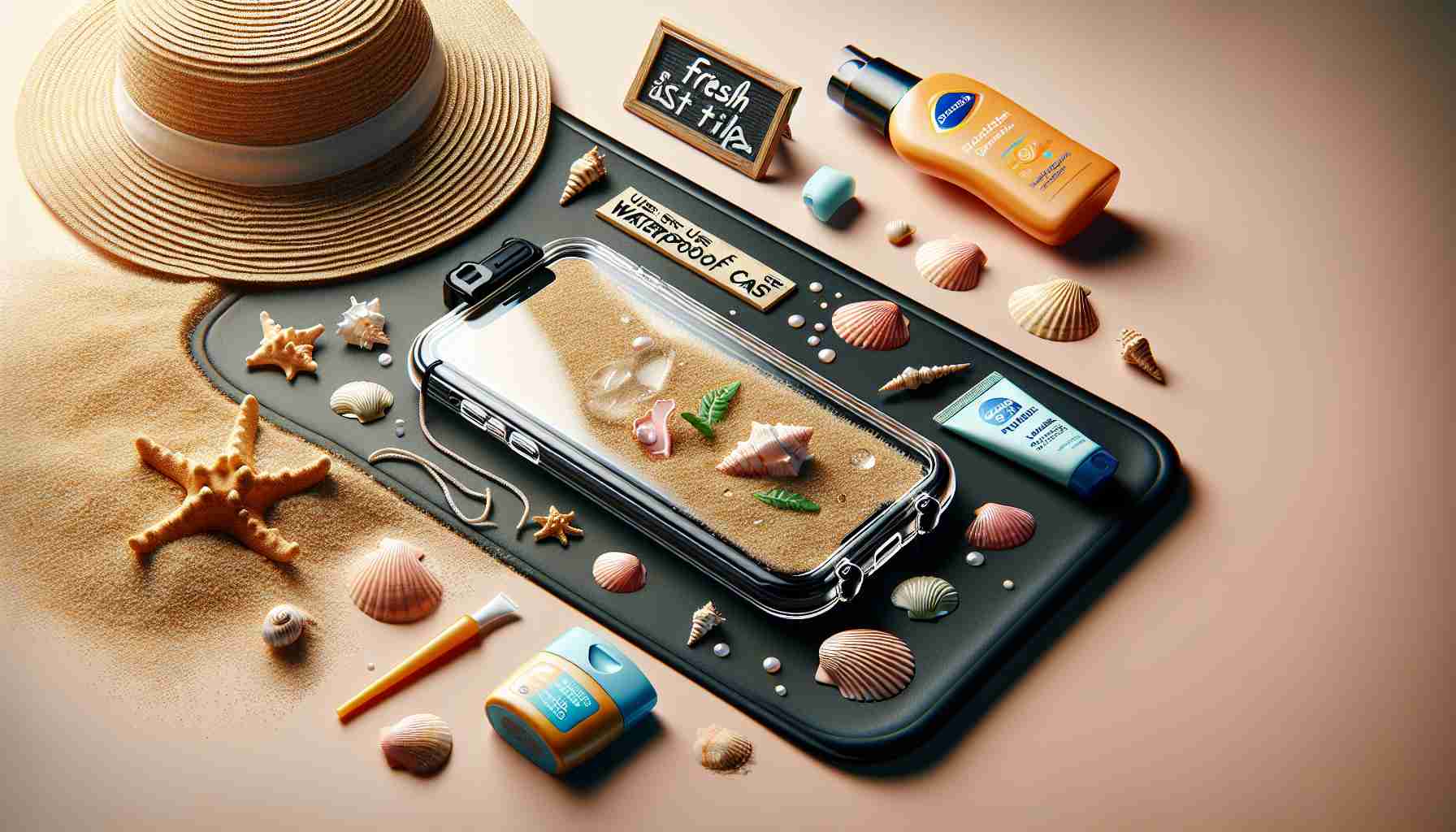Wrap Your Phone in Plastic
Keep your phone safe from sand and water by wrapping it up tightly in plastic wrap. This protective barrier will shield your device from any potential damage while still allowing you to use the screen.
Use Covers for Openings
To prevent sand from getting into the headphone jack or charging port, cover these openings with small caps or plugs. This minimalistic approach will keep your phone safe while still providing easy access to the screen.
Keep Your Phone in a Ziplock Bag
If you need to use your phone frequently, consider storing it in a ziplock bag for added protection. While not foolproof, this method can help safeguard your device from the elements at the beach.
Avoid Using Your Phone Right After Being in the Water
Water, especially saltwater, can be damaging to your phone. To prevent any potential issues, wait until your phone has dried off before using it again. Additionally, keep your phone in the shade to avoid overheating from the sun.
Remove Sand from Your Phone with Ease
If sand does find its way onto your phone, there are simple tricks to remove it without causing damage.
Protect Your Phone at the Beach with Additional Tips
When it comes to enjoying your phone at the beach, there are several additional measures you can take to ensure its safety and longevity. Let’s delve deeper into some key questions and considerations to keep in mind:
What are the advantages and disadvantages of using a waterproof phone case?
Advantages: Investing in a waterproof phone case can provide a high level of protection against water damage. These cases are specifically designed to seal out water, making them ideal for beach trips where water exposure is a concern.
Disadvantages: On the downside, waterproof cases can sometimes add bulk to your phone, making it less convenient to carry around. Additionally, some cases may affect sound quality or access to buttons and ports.
Is it worth investing in a screen protector for beach outings?
Yes, adding a screen protector to your phone can offer an extra layer of defense against scratches from sand particles or other debris. This can help preserve the integrity of your phone’s display over time.
What should I do if my phone accidentally gets submerged in saltwater?
If your phone gets submerged in saltwater, it’s crucial to act fast. Rinse the device with fresh water to remove salt deposits, then allow it to dry completely before attempting to use it again. Saltwater can be corrosive, so prompt action is key to minimizing damage.
Key Challenges:
One common challenge when protecting your phone at the beach is balancing functionality with safety. While it’s important to shield your device from sand and water, you also want to ensure that you can still use your phone effectively for capturing photos, staying connected, and more.
Related Links:
– Consumer Reports
– CNET
– TechRadar


















